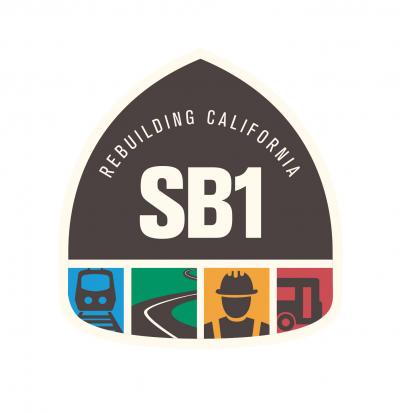Senate Bill 1 Planning Projects
Senate Bill 1, the Road Repair and Accountability Act of 2017, was signed into law on April 28, 2017. This legislative package invests $54 billion over the next decade to fix roads, freeways and bridges in communities across California and puts more dollars toward transit and safety. These funds will be split equally between state and local investments. See where the money is going.
A portion of these funds ($25 million annually) have been made available for local or regional level planning activities. Sustainable Communities grants are intended for regional multi-modal transportation and land use planning projects which support regional sustainable community strategies and help achieve California's greenhouse gas reduction targets. Grants are awarded both competitively and by formula to eligible projects.
(click here for more information about Senate Bill 1)
MCTC staff are currently engaged in the following Sustainable Communities projects:
Madera County Growth and Development Forecast
The Madera County Growth and Development Forecast was prepared to provide accurate projections of future conditions in Madera County out to the year 2050. The Forecasts play a vital role in the development of the Regional Transportation Plan and Sustainable Communities Strategy (RTP/SCS) for Madera County.
Zero-Emission Vehicle Readiness and Implementation Plan
This plan will assess the existing Zero-Emission Vehicle (ZEV) infrastructure environment, recommend infrastructure improvements and investments, identify implementation strategies and policies to promote ZEV infrastructure adoption in the short- and long-term, identify key community challenges and barriers to advancement, and provide stakeholders with tools to procure, site and install various ZEV infrastructure. This plan will primarily address conventional ZEVs including battery electric vehicles (BEVs) and fuel cell electric vehicles (FCEVs). This plan will be developed betweenSeptember 2021 and November 2022.
State Route 233 Corridor Study
MCTC, in collaboration with stakeholders, will commission a Public Participation and Outreach Plan and a Corridor Planning Study / Downtown Master Plan of State Route 233/Robertson Boulevard from State Route 152 to Road 19, with an emphasis area in Downtown Chowchilla.
MCTC and the City of Chowchilla will be collaborating closely on this project due to a parallel Senate Bill 1 Sustainable Communities Competitive Planning Grant the City of Chowchilla was awarded. Their Truck and Signage study have been integrated into this scope of work, funded from a different source, because State Route 233 is the main trucking route and main street in the City of Chowchilla, as well as, part of the significant road system for the region which connects with State Route 99 and State Route 152.
(click here for more information)
Madera County Project Prioritization Study
The Madera County Project Prioritization Study will identify and prioritize transportation projects that best help the region meet it’s various goals related to Greenhouse Gas (GHG) reduction, reducing vehicle mile traveled (VMT), better accommodating diverse modal choice, increasing traffic safety, supporting economic vitality and decreasing adverse health effects related to travel throughout the Madera Region.
The overall process will be one that continues to advance MCTC’s overarching goal of further promoting social equity in transportation project delivery.
(Click here for more information)
State Route 41/Avenue 9 Sustainable Corridor Study
Fresno Council of Governments, in partnership with MCTC, developed a study to determine the future transportation needs of the SR 41 corridor in the City of Fresno and the southern segment of SR 41 in Madera County. In addition, the study analyzed the future transportation needs of the Avenue 9 corridor in Madera County between SR 41 and SR 99.
The study identified existing and future issues along the two corridors related to safety, mobility, congestion, etc., and recommend sustainable improvements that will address the transportation needs of the residents in both counties through multi-modal approaches. Issues to be addressed include: mobility, access, safety, and connectivity for all modes of travel including automobiles, transit, walking, and bicycling.

